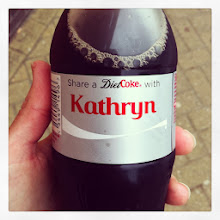Apple have hurriedly patented their portable stretchy napkin-esque device: the multi-touch skin. Apparently, this technology could pave the way for...
Good.
Application in sporting equipment and training (i.e. Tennis)
‘The multi-touch skin is wrapped around the entire circumference of the handle and extends along the length of the handle and in this manner spans three dimensions of the object enabling multi-touch input as a player grasps the handle during play.’
Kit Eaton (tech writer at FastCompany) says the skin could be ‘darn useful’. Darn useful for CHEATING more like. As this kind of technology excels, athletes will rely more heavily on machines and computers to determine what’s right and what’s wrong. Human error will be unacceptable and technology will be ready and waiting to point out a 0.0001% deviation from perfection.
What happened to natural talent?
Touchy-feely-sweepy-slide-swish
It seems we are unable to make any finger movement other than swish and slide these days. It freaks me out when young kids already have this movement ingrained in their motor memory. I was sitting in a doctor’s waiting room and looked over to a little girl furiously playing Angry Birds on cool Dad’s iPhone. She must’ve been only three or four years old and was wearing Velcro shoes; I wonder if she could tie her laces. Tenuous analogy? Oh well. Even though cool Dad was getting five minutes peace, there was clear disconnection between the two of them. Little girl’s blinkers were on and up – nobody was going to interrupt her!
So anyway, Kit goes on to say...
‘Imagine a remote that merely relies upon the brush of your thumb to change channels.’
No problem! That’s pretty much what we have already, you doorstop! I’m not sure about you, but I don’t notice a greater difficulty in pressing a button cl-ick than a sweepy sa-woosh. But I guess we’ll eventually say bye-bye to the faithful button.
Boo hiss. I’m never going to be able to relieve any frustration by swoooooshing away from the One Show.
Replacing buttons with thumb sweeps make some things more ergonomic for some users. Those who are born into this touchy-feely techno-world have no problem picking up this way to interact with such gadgets, but to try and explain this kind of function to an older demographic just wouldn’t work.
Multi-touch skin guitar lessons for the super-unsociable
Using the napkin with a guitar could mean that...
‘The user could perform chords on the guitar fret in conjunction with instructional software shown on a display. The player’s chords on the multi-touch skin could be tracked and then analyzed by the instructional software to determine if the player is properly performing the chords. That would work nicely with Apple’s Garage Band ’11 iLife app for Guitar Lessons.’
Learning to play music through a screen and analytical software? My survey says NO. In my experience, music teachers are one of two breeds: scary and brilliant or lovely and useless. Without a combination of nagging, pestering, scolding and... crying, I don’t think I would’ve learnt as well as I did. I know that I wouldn’t have had the same relationship with a display screen anyway – computers are either off or on.
The influential presence of a human cannot be matched or replaced by a technology (at the moment), and it’d neverrr be able to be exactly the same. In addition, the words ‘tracked’, ‘analyzed’, ‘properly performing’ would rarely be heard within a musical teaching environment. Because music is so expressive and personal, it requires a human touch and human ear to guide a pupil through the learning process, and sometimes that doesn’t always mean playing all the correct notes all of the time.
So?
Yes, napkin technology is clever and perhaps useful in some contexts (you can research these for yourself) but it’s important to look at technology in a negative light sometimes. Because so much hype surrounds every new development; it’s easy to get wrapped up in the excitement. So, to conclude this post, the multi-touch skin and its potential application would discourage social interaction, it would cut out important life-experiences, and continue to endorse laziness with even greater dependence on computers and technology.
End.








